Late every winter, leaders from across credit union land gather to network with 5,000 or so of their closest friends and lobby their lawmakers. CUNA’s Governmental Affairs Conference is booked this year for March 10-14, again at the Walter E. Washington Convention Center in downtown DC.
The annual soiree is the movement’s largest gathering. Attendees hear from and meet with lawmakers, listen to keynote speakers, and check in with CUNA. Plus, there is what’s billed as one of the larger exhibition floors in the domestic financial services space.
There’s lots of opportunity to network and negotiate. Planning ahead is vital to ensuring there’s not a moment wasted during this visit to the nation’s capital.
ContentMiddleAd
Know What

Dennis Tanimoto, President/CEO, Hawaii Credit Union League
As there is every two years, there’s a new Congress in session, with 10 new senators and 101 new representatives joining the 335 incumbents already on Capitol Hill. Not so new are the issues that will be front and center when credit unions visit their legislators and staff, traditionally on the convention’s final two days.
Our top three topics, in order, are preservation of the credit union tax exemption, regulatory relief, and merchant data security, says Dennis Tanimoto, president and CEO of the Hawaii Credit Union League.
His list matches that of CUNA’s chief advocacy officer, Ryan Donovan, who describes the GAC as four conferences in one.
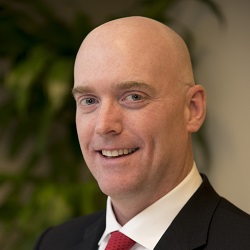
Ryan Donovan, Chief Advocacy Officer, CUNA
You get great stage content, a robust education series, all the networking opportunities, and then the visits to the Hill and meetings with policy makers, Donovan says.
The veteran CUNA lobbyist says new House Financial Committee Services chair Maxine Waters (D-CA) and Senate Banking Committee chair Mike Crapo (R-ID) have indicated that data privacy will be a top priority for their panels.
You can’t have data privacy without data security, Donovan says.
To that end, CUNA will be renewing its case for imposing the same expectations and responsibilities on merchants as carried by card issuers, and Donovan advised hill hikers to come armed with specific instances of how breaches have affected their credit unions and their members.
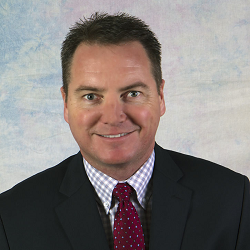
Kevin Cole, Executive Vice President, Mid Oregon FCU
Other issues include, to name just a few, fintech regulation, marijuana banking, military lending, and leadership of the CFPB and NCUA.
There’s a lot to keep track of, but Tanimoto has advice for his 60-person delegation and for every other credit union leader hiking the hill.
Be knowledgeable about the issues, he says. And be ready to cite examples of how credit union members the elected officials’ constituents would be impacted by proposed legislation.
Donovan adds that credit union leaders should also point out how financial cooperatives stepped up to help federal employees during the recent record-long government shutdown.
It’s important that credit union advocates come to Capitol Hill armed with personal stories and anecdotes about their credit unions, their members, and their communities.
Indeed, the people are as important as the politics.
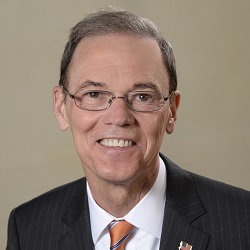
Bill Mellin, President/CEO, New York Credit Union Association
Certainly, studying the issues and learning about the members of Congress where they’ve historically stood on our priorities, bills they’ve supported, committees they serve on are ways to prepare for a productive meeting, says Bill Mellin, president and CEO of the New York Credit Union Association. But it’s just as important that credit union advocates come to Capitol Hill armed with personal stories and anecdotes about their credit unions, their members, and their communities.
To that end, Jeremy Empol, vice president of federal government affairs for the California and Nevada Credit Union Leagues, advises hill hikers to prepare a logo-branded one-pager that includes the credit union’s contact info, assets, field of membership, basics about the membership, stats on what kind of loans the credit unions is making and to whom, and delinquency rates.
It should also show a list of financial literacy programs and community programs, sponsorships, or grants through which your credit union makes a local positive impact, Empol says. It should have all the people helping people’ programs that are unique to your credit union.

Samantha Beeler, VP Advocacy, Northwest Credit Union Association
As for doing their homework, the leagues each have their own way of prepping their people. For example, the Northwest Credit Union Association puts together a GAC book for its delegation of more than 220 attendees.
It has everything from talking points to delegation bios to maps of DC, says vice president of advocacy Samantha Beeler. It’s usually a big hit.
Know Who
Credit union visitors also need to be aware of the priorities and positions of the lawmakers they visit, from freshmen to senior power brokers. A prime example: Whereas the California congressional delegation includes nine newcomers, Waters has been there for 30 years, and seniority matters.

Jeremy Empol, VP Federal Government Affairs, California and Nevada Credit Union Leagues
Chairwoman Waters has stated that addressing affordable housing issues will be a primary objective for her committee this session, says Empol at the CCUL. For credit unions, this means discussing access to the Government Sponsored Enterprises and other liquidity partners.
Indeed, the changing NCUA board two Trump nominations are now pending and Waters’ ascendancy raise questions that Kevin Cole, executive vice president of Mid Oregon Federal Credit Union ($312.7M, Bend, OR), expects to be bandied about at the GAC.
What will the environment look like with Maxine Waters as chair of House Financial Services? Cole asks. Have we lost our opportunity for additional forward momentum on regulatory relief? Should we focus on advocacy with the regulatory agencies instead of Congress?
As for the NCUA, Cole suspects the inspector general report about Chairman McWatters will be a topic of discussion.
Take time to personally connect with staff on the Hill. It’s so important to not underestimate the role of a staffer and how difficult their jobs can be.
The chairman of the Hawaii league board, meanwhile, has his eye on that state’s new members of the Senate Banking Committee and the aforementioned House panel.
We need to build a compelling case for meaningful legislation that will benefit credit union members and overcome partisan gridlock, says Andrew Rosen, president and CEO of Hawaii State Federal Credit Union ($1.6B, Honolulu, HI).
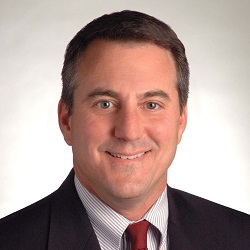
Andrew Rosen, President/CEO, Hawaii State FCU
Five time zones away, Brian McKay, executive vice president of SC Telco Federal Credit Union ($407.2M, Greenville, SC), shares a similar agenda.
He offers these three tips:
- Review the important issues at hand.
- Review elected officials’ stances on those issues.
- Visit as many delegate’s offices as you can.
South Carolina’s elected officials in Washington are mostly great supporters of the credit union movement, McKay adds.
And finally, don’t forget the powers behind the thrones.
My favorite tip is to meet as many people as possible and take time to personally connect with staff on the Hill, says Beeler at the NWCUA. Do not underestimate the role of a staffer and how difficult their jobs can be. I always encourage our young professionals and Crashers to take advantage of the time in DC and build relationship with Hill staff.
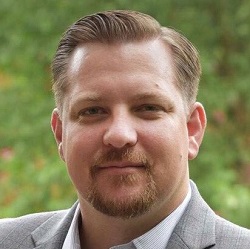
Brian McKay, Executive Vice President, SC Telco FCU
Back At The Convention Center
Although congressional visits are essential, there’s much more to the credit union movement’s largest confab.
Be sure to attend the large group sessions, says McKay at SC Telco. Being with thousands of credit union employees, volunteers, and supporters reminds you that our movement is something special.
Keynote speakers this year include former Secretary of State John Kerry, Tipping Point author Malcolm Gladwell, and congressional, NCUA, and CUNA leaders. But there’s more to the three days at the convention center than information and entertainment.
Go Pro With These GAC Tips
Veteran GAC attendees offer tips on how to make the GAC a successful trip to DC.
- Review the schedulein advance, and download the CUNA GAC app.
- Prioritize your time. Decide in advance who and what you need to see. Schedule meetings in advance when possible.
- Do your homework on the issues that matter. Prepare a couple of questions to ask lawmakers and their staff.
- Bring stories to share about credit unions helping people.
- Build your network. Make at least one new connection from outside your state.
- Wear comfortable shoes.
The networking and idea-sharing with industry professionals, volunteers, and advocates at the CUNA GAC are hard to replicate elsewhere, says Mellin at the NYCUA. Try making it a point to expand your network, to build one new connection with a peer from outside your state.
The exhibition floor is a great place to meet, greet, and eat while catching up on the latest from long-established and new entries in the marketplace. It offers more than one person can cover during its hours of operation open Sunday-Tuesday, closed during general sessions. But for this, too, McKay has advice that applies well to the whole GAC experience.
Visit the vendor area, but be strategic, the EVP says. Decide who you definitely want to see, and plan your visits to make sure you’re able to do that. Once those planned visits are done, wander around a little.